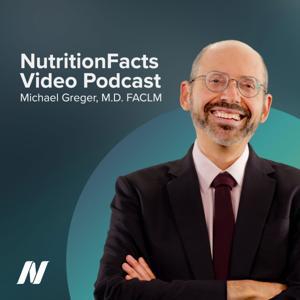Thank you Marg KJ, Afsi, Lydia R, Tony, and many others for tuning into my live video with Chef Martin Oswald!
This week on Habit Healers Live, Chef Martin and I turned brain science into brain food, literally. Inspired by Dr. Dominic Ng’s recommendations for the Brain Health Substack Summit happening next week, Chef Martin prepared two stunning salmon dishes designed to preserve omega-3 fatty acids and pack as many brain-boosting ingredients as possible into every bite.
The result? Seven of Dr. Ng’s recommended brain health ingredients in a single recipe. Here’s what we learned.
The Science Behind Today’s Cook
Dr. Ng’s brain health food list breaks down into several key categories, and Chef Martin built today’s dishes around them:
Gut-Brain Axis: Kimchi, kefir, sauerkraut, and leeks — Chef Martin chose leeks as the foundation for his vegetable sides.
Cerebrovascular Blood Flow (or as I put it, “blood to the brain”): Roasted beets, spinach, and kale — beets and spinach both made it into today’s dishes.
Neuroinflammation: Extra virgin olive oil, berries, and turmeric — olive oil was used in cooking, and turmeric appeared in the French spice blend.
Neuroplasticity: Sardines and anchovies — a Moroccan sardine dish is coming later this week (stay tuned!).
Neurotransmitters: Eggs, pumpkin seeds, and turkey — eggs showed up in the gribiche sauce, and crushed pumpkin seeds became the crust on the salmon.
Dish #1: Pumpkin Seed-Crusted Salmon with Sauce Gribiche
Chef Martin’s first dish was a thick-cut Atlantic salmon fillet with a crushed pumpkin seed crust, served over water-sautéed leeks, French lentils, beets, and spinach, topped with a classic French sauce gribiche.
Key Cooking Tips for Preserving Omega-3s
Why it matters: Omega-3 fatty acids begin to oxidize at around 160°F. The whole goal is to cook salmon slowly at lower heat to preserve these essential brain nutrients.
Cook skin-side down first. The skin acts as a protective barrier, shielding the omega-3-rich oils from direct heat. Sear skin-side down for 5–7 minutes on medium heat.
Don’t flip too early. If the skin sticks, it’s not ready. When properly cooked, the salmon will release from the pan on its own.
Use a stainless steel pan. Chef Martin recommends stainless steel to avoid particles from coated pans breaking off with use.
Bring fish to room temperature first. Let salmon sit out for about 30 minutes before cooking. Cold fish won’t cook evenly, it’ll stay raw in the center.
Sear the sides. A restaurant trick: briefly press the sides of the salmon against the pan to seal all around. This prevents those white protein spots from forming on top.
Use the paper towel trick. After cooking, rest the salmon on a paper towel to absorb the oxidized cooking oil before plating. This is what the best restaurant chefs do.
Check temperature: For home cooks, use a thermometer — 125°F is the target for medium-rare salmon that preserves the most omega-3s.
Oven method alternative: You can also slow-bake salmon at 250°F for about 45 minutes (for a one-inch fillet). It comes out buttery, creamy, and incredibly nutrient-rich.
About Sauce Gribiche
The word of the day! Gribiche (G-R-I-B-I-C-H-E) is a classic French sauce made with hard-boiled eggs (for choline and neurotransmitter support), capers, parsley, shallots, mustard, and apple cider vinegar. The acidity of the sauce balances the richness of the salmon, a key flavor profiling principle.
The Vegetable Side
Chef Martin kept this intentionally low-calorie to balance the richness of the fish: leeks cut into strips and water-sautéed (no butter, no oil), French lentils (recommended by Dr. Chris Miller for fiber), pre-cooked beets (for nitrates and cerebrovascular blood flow), and fresh spinach wilted in at the end.
Get the full recipe for the Pumpkin Seed–Crusted Salmon with Sauce Gribiche, Roasted Beets & Leeks here.
Dish #2: Matcha Salmon Noodle Bowl
The second dish was inspired by Dr. Julie Brantantoni’s recommendations. Chef Martin used the belly portions of the salmon, the fattiest part with the highest concentration of omega-3s, cut into small, fingernail-sized pieces and cooked very quickly to avoid oxidizing those delicate fats.
What’s in the Bowl
The base is konjac noodles (also called sweet potato starch noodles), a great option for anyone managing blood sugar, as they have essentially no carbohydrates. Just rinse with hot water and they’re ready.
The star is a matcha dressing made with matcha, tahini, garlic, ginger, and date syrup. Chef Martin’s advice from legendary German chef Witzigmann: when you name a sauce after an ingredient, that ingredient should be the star. Let the matcha shine.
Finished with shiitake mushrooms sautéed in a touch of sesame oil (only about 30 calories to flavor an entire dish, compared to 120 calories of olive oil for the same impact), leeks, spinach, hemp seeds (plant-based omega-3s and protein, added at the very end to preserve nutrients), black sesame seeds, and fresh torn mint leaves.
Full Matcha Salmon Noodle Bowl recipe coming soon.
Wild vs. Farmed Salmon: What to Know
A viewer asked whether wild salmon is better than Atlantic farmed salmon, and the answer was a clear yes. Chef Martin explained that cheap farm-raised salmon often contains synthetic omega-3s and added coloring. The fish can fall apart when you lift it, a sign of how much oil has been added. Wild salmon (like coho) has a naturally darker, deeper red color.
If you’re buying farmed salmon, invest in higher-quality options from reputable farms. Avoid the cheapest mass-produced options, which can come with concerns about water quality and antibiotic use.
Don’t Eat Fish? Here Are Your Options
For those who don’t eat fish (myself included!), Chef Martin and I discussed several alternatives. You can substitute tofu or azuki beans in these dishes for protein and texture. Konjac noodles add substance without spiking blood sugar. Omega-3 supplementation (EPA and DHA) is another option, Chef Martin himself eats mostly vegetarian and takes omega-3 supplements, inspired by Dr. Dean Ornish’s 2025 Alzheimer’s study. I take omegas daily. Hemp seeds, ground flax, and chia seeds provide plant-based ALA omega-3s and can be sprinkled on any dish.
What’s Coming Next
Moroccan Sardine Charmoula recipe — dropping mid-week on Chef Martin’s Substack
Summary article with all Brain Health Forum recipes — coming next Saturday with Chef Martin reviewing everything together.
Don’t Miss: Brain Health Substack Summit Starts Monday!
Starting Monday, February 23rd at 10:00 AM Pacific, I’m going live every day next week with a different brain health expert for the Brain Health Mini Substack Summit. Half-hour live interviews each day, covering how we can increase our brain longevity. The lineup includes Julie Fratantoni, PhD on Monday, with five more experts throughout the week, and Chef Martin Oswald closing it out with a full recipe roundup.
Join the Brain Health Substack Summit live here.
I highly recommend subscribing to Chef Martin’s Substack for all his incredible brain health recipes, he and his wife, Carolyn, work tirelessly to bring you dishes that are as nourishing as they are delicious.
Subscribe to Chef Martin’s Healing Kitchen Substack.
Get full access to The Habit Healers at drlauriemarbas.substack.com/subscribe




































